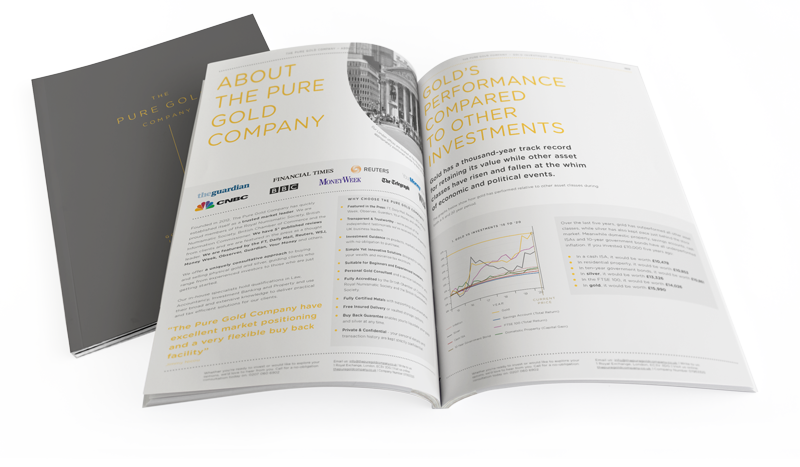The global economy affects individual livelihoods in interconnected ways. Its fluctuations can mean more, or less, money in your pocket, it can impact the banks and institutions we use every day, support or hinder the job market and it can directly impact social and political stability wherever you are. So, what is the outlook for 2024? Will we feel richer, safer and more secure, or will we need to find security in more tangible assets like gold?
Difference and similarities
Sometimes major global events can affect every country, like the inflation surge that was born of the pandemic shortages, or the financial crisis of 2008 that impacted every corner of the world’s economy. But while these events serve to highlight globalisation, there also are different glide paths for economies around the world. In 2024, as inflation has receded across the world, the recovery in economic growth has been different across countries, with some recovering more quickly, while others are still trying to shake off a recession.
GDP growth
UN Trade and Development (UNCTAD) forecasts global economic growth will slow to 2.6% in 2024, just above the 2.5% threshold commonly associated with a recession. This marks the third consecutive year of growth below the pre-pandemic rate, which averaged 3.2% between 2015 and 2019. This global average is just that, an average, and give a general indication of the health of the economy around the world, but GDP growth will differ from country to country.
In the US, optimistic forecasts at the start of the year have begun to unravel as a trail of poor economic data puts the recovery on the back foot. In late April, US GDP figures showed growth had contracted to 1.6% in the first quarter of 2024, its lowest level for two years, and at the same time inflation rose to 3.4% in the first quarter of 2024, up from 1.8% at the end of 2023. The slowdown in GDP and rise in inflation were both worse than expected, and means hopes for imminent US interest rate cuts are fading fast.
The UK meanwhile fell into recession at the end of 2023 (two consecutive quarters of negative growth), and is struggling to turn the economy back to growth. Even though inflation is well below its double-digit highs of 2022, it is not yet down to the Bank of England’s 2% target.
At the start of the year, forecasts were optimistic about solid growth and an easing of interest rate pressure on borrowers. But as weak economic data mounts, the outlook for the year is slipping.
Housing and Property Market
Interest rates surged in 2022 and 2023 in response to the global spike in inflation, and this inevitably had an effect on property markets globally. So far, most major economies are not nearly confident enough in their economic recovery to start cutting interest rates to their pre-pandemic levels, in fact expectations for a rate cut in the US has been repeatedly pushed further into the future. It will happen, just not yet, and this change will dampen the housing market there. As recently as mid-April, the Federal Home Loan Mortgage Corporation, commonly known as Freddie Mac, slashed its forecast for the housing market, it now expects house prices to grow just 0.5% this year and next, compared with over 2% it forecast just last month.
In the UK the situation is equally mixed. Property prices fell throughout 2023 and year-on-year declines over the first three months of the year are a worrying portent for the rest of the year. There was a brief glimmer of change when average mortgage rates dropped at the beginning of 2024, but they have gone back up again which will inevitably affect affordability. There is still a cost of living crunch even as inflation has come down, and the Bank of England is in no rush to cut rates (most market watcher expect the first cut to come in the summer). Meanwhile the mortgage market is very precarious and the likelihood of a rebound in 2024 has receded.
Looking Into Gold Investment?
Book a FREE consultation with our expert brokers at The Pure Gold Company.

Employment prospects
On a global scale the employment outlook is worsening. The International Labour Organisation’s World Employment and Social Outlook 2024 said slowing GDP growth will lead to global unemployment rising to 5.1% this year. Of course there will be country-specific differences. Unemployment in the US, which is a key indicator when considering the health of the economy and hence when to cut interest rates, rose to its highest level in two years at the end of February, before dropping slightly in March.
In the UK, KPMG expects the unemployment rate to rise from 4% in 2023 to 4.2% this year and 4.5% next year. On the plus side though, wages are finally growing faster than inflation so at some point consumers will stop feeling so pinched. The pandemic changed the demographics of the employment market, forcing some workers out entirely and creating more opportunities for remote working for others. Across the globe, these changes are still impacting the job market, sometimes for the better, others for the worse.
Gold – A safe-haven investment in uncertain times
During the more recent pressures of the last century, from the great depression to world war, global economic shocks to the oil crisis, gold has often risen in value, but always at least retained its value over the long term even as inflation erodes cash.
With the outlook for the global economy still stagnant at best, declining at worst, physical gold investments offer safety and security over the long-term. Alongside its safe-haven properties that can protect investments from global economic shocks, gold is also a tax-efficient option. Investment grade gold is VAT exempt and specific gold coins including Sovereigns and Britannias are not subject to capital gains tax for UK nationals.
The gold price has made strong gains over the last few months, rising 10% in March alone and gaining over 16% in the last three months. The uncertainty of the economic and geopolitical environment has underpinned this rise, as buyers look to safeguard their investments from value erosion or market declines. Central banks are buying gold, and they have a clear purview of the global picture. It could be prudent to follow their lead as the optimism of early 2024 turns to uncertainty.


